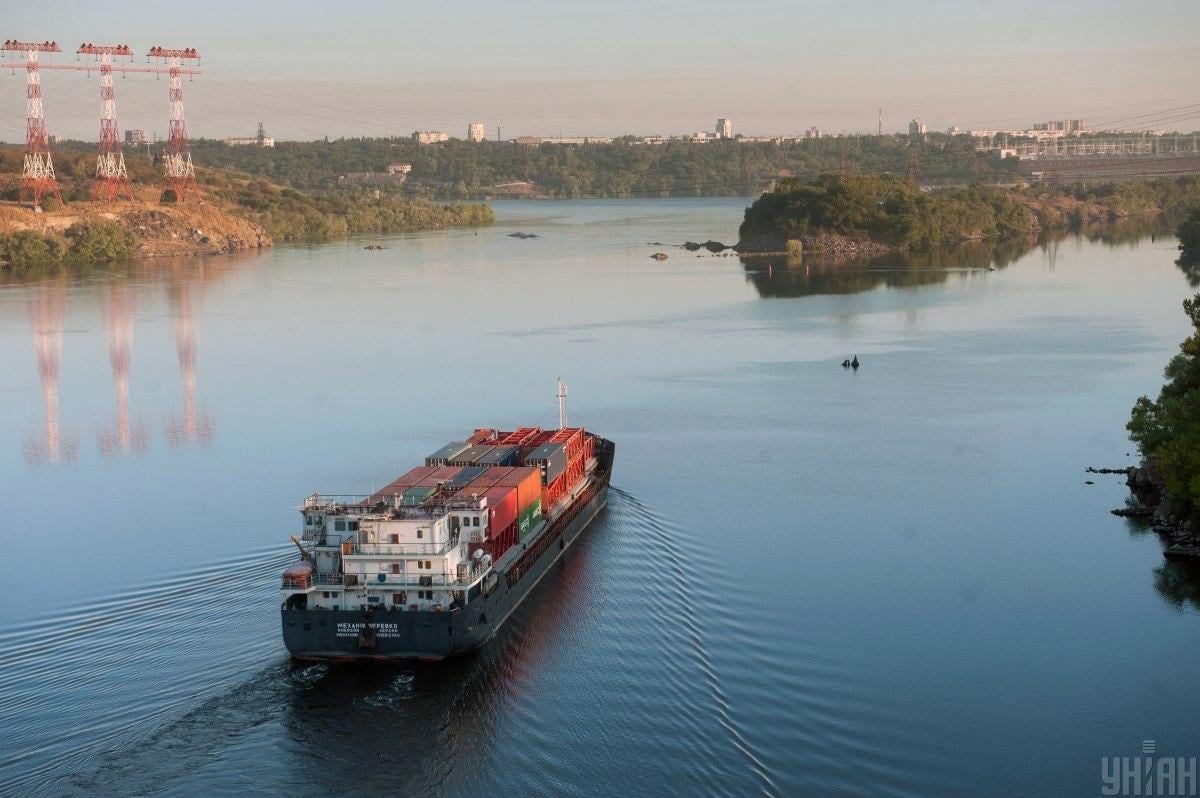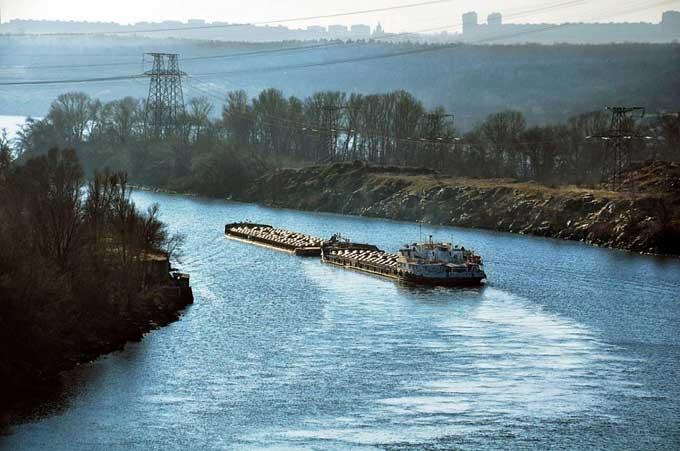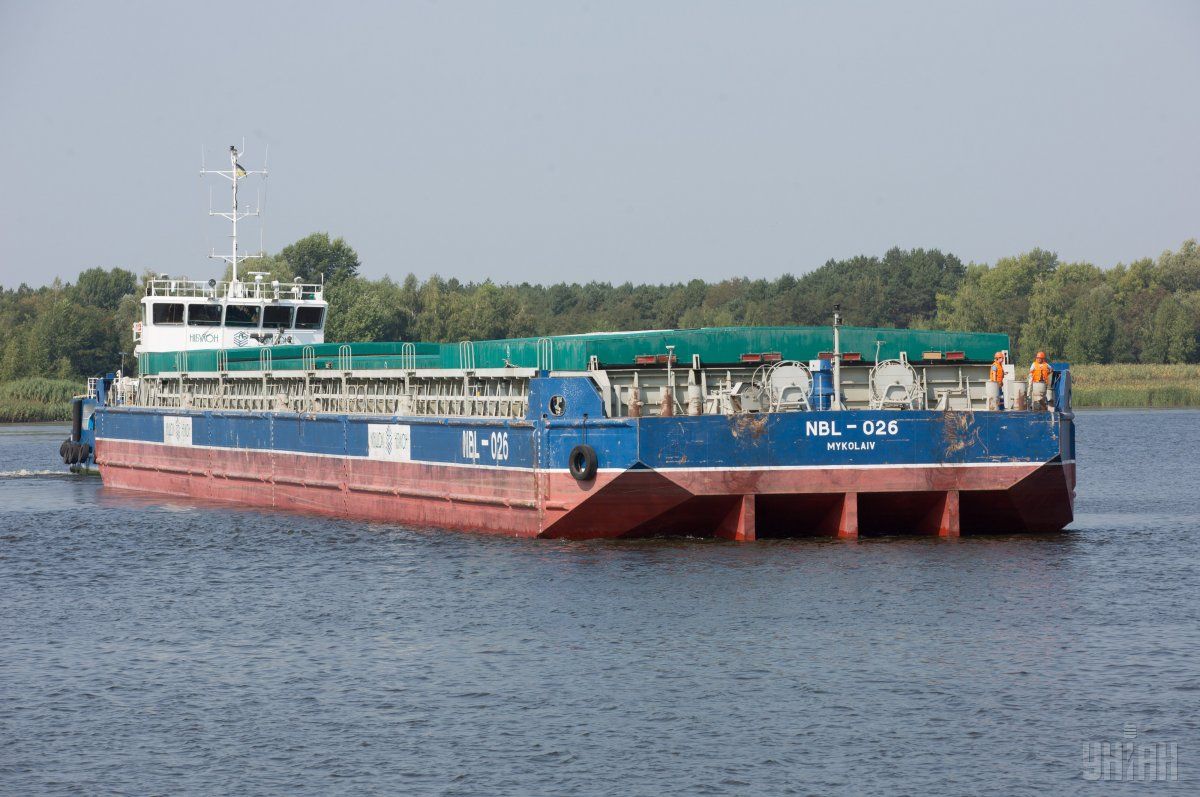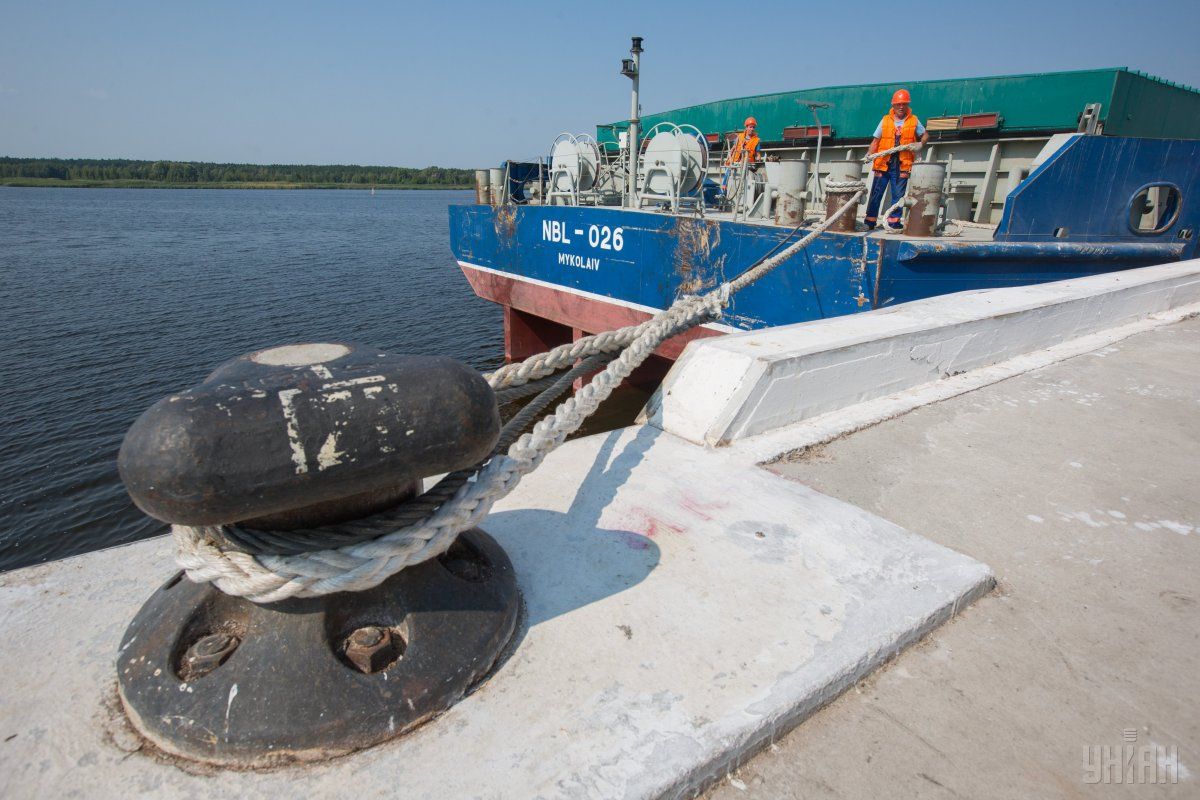
Chance for revival of Ukraine's river transport: New legislation brings new incentives
Ukraine is starting to revive inland water transportation. The Verkhovna Rada has adopted a basic law for inland water transport, which should set the course of strategic development of the industry. However, the depressing state of river navigation makes the revival of the national river economy a real challenge.
In early December, the Verkhovna Rada passed new legislation deemed crucial for the development of the national river shipping industry: Law on Inland Water Transport.
Over the years of Ukraine's independence, the entire sector of the economy has had no basic law to be governed with, while all attempts to regulate the field have dragged on for decades without any significant success.
Obviously, such a situation could have no positive effect on river navigation development. President Volodymyr Zelensky noted that the potential of river transportation in Ukraine had not been realized.
"A huge industry has been drowning for years. Only 1% of [freight] transportation used to be carried out by river," the head of state declared.
The bill's ideologist and co-author, head of the river transport subcommittee at the parliamentary committee on transport and infrastructure, Artem Kovalev, in a comment to UNIAN also noted the deplorable condition of Ukrainian river infrastructure.
"Today we see destroyed river infrastructure, locks in a state of emergency, reduction of annual freight traffic to 10 million tonnes, although the Soviet Union had 60 million tonnes," he said.
The co-author of the bill noted that river infrastructure in Ukraine today has been worn out by more than 75%.
According to Kovalev, the situation remains abnormal as river transport is the cheapest and most environmentally friendly mode in the world, which should make its development a priority of government infrastructure policy.
Businesses also voice negatively assessments of the current state of the industry. In particular, a survey by the European Business Association showed that no business CEOs said anything positive about it. None of the other modes of transport has received such a devastating assessment.

Legislative innovations
According to Minister of Infrastructure Vladyslav Kryklii, the law on water transport marks the start of river transport reform.
"Thanks to the implementation of this law, we will be able to revive the cheapest and most environmentally friendly way of delivering goods – river transportation – and create efficient river logistics," he said.
Also, the minister noted that the law includes the implementation norms for five main European directives in the field, and is designed to harmonize Ukrainian legislation with that of the EU.
MP Artem Kovalev has told UNIAN that the law is designed to create a basis for further formation of the water transportation market in Ukraine.
"In fact, with this bill we seek to start the reform of river transport and take the first step toward an open market for freight and passenger transport," the legislator said.
According to him, such goals become achievable due to the fact that the law passed by Rada covers all areas of water transportation.
One of the most important and most discussed innovations in the document was the admission into Ukrainian rivers of vessels flying a foreign flag. Kovalev explained that the move was needed given the low readiness of Ukrainian businesses to the rapid river traffic growth.
"Now in order to meet the demand on the one hand, and on the other – to increase annual cargo transportation by river to 30 million tonnes, as we plan, we need to build 250-300 new vessels. We understand that it is unrealistic to do this in a short time. So, in fact, we have agreed to allow vessels flying a foreign flag to operate on our inland waterways," he said.
Kovalev stressed strict conditions for such vessels' technical condition, envisaged in the new legislation.
Vladyslav Belakh, an expert on transport and infrastructure, President of the Center for Agrarian Logistics and Infrastructure, agrees with the legislators' logic, while noting the importance of developing domestic shipbuilding.
"Investing in the construction of barges, for example, is a rather long process. At the moment, if we say that we expect an increase in freight traffic on rivers, it would be really appropriate to allow the use of the fleet flying a foreign flag for some time, while needing to develop certain measures to stimulate the Ukrainian fleet," he said.

Compromise with businesses
According to the bill's co-author Artem Kovalev, between the first and second readings in the Rada, deputies submitted a number of amendments to the text, as a result of a compromise achieved with businesses.
"If we talk about the amendments that we took into account between first and second readings, in fact, we have at many points compromised with businesses. These amendments were mainly submitted by MPs either as an additional stimulus for businesses or as a simplification of the bureaucratic system that existed before," Kovalev said.
In particular, lawmakers have retained licensing only for passenger transport and hazardous goods transportation, worked out a wastewater discharge mechanism, and required foreign companies to register a Ukrainian business entity and pay taxes in Ukraine if such companies seek to operate on Ukrainian rivers.
Also, Kovalev noted that in the final version of the law adopted by the Rada, river ports are allowed to provide services to vessels whose landing exceeds 4.5 meters – something that wasn't there at first reading.
"These services can be provided by a port – if they have paid the scheduled fees at the nearest seaport," he concluded.

Industry development and additional income
With the adoption of the new law, the legislative work on inland water transport isn't completing. In particular, Kovalev said that a bill has already been registered in the Rada, which provides for the creation of the State Fund of Inland Waterways.
"We have already registered the bill. These are changes to the Budget Code, to create a special fund for inland waterways development, with clear sources of income laid down. If we set up the protected fund, we'll be able to repair and modernize our river infrastructure," he said.
Among the Fund's sources is 1% of the excise tax on Ukraine-produced fuel, 3% of customs duties paid for ships flying a foreign flag crossing into the national customs regime, and 45% of rent payments received for special use of water for hydropower needs.
Belakh, an expert in the field of transport, noted that in the future, these funds could be allocated for the development of domestic shipbuilding.
"If improvements in modernizing river infrastructure take place, then, of course, this could be used as a Fund to promote shipbuilding and help carriers, or replace the old fleet with a new one, or create a new one," he told UNIAN.
Belakh stressed that the creation of a kind of river version of the "Big Construction" project could be a powerful stimulus for the general development of river transport.
"A serious impetus for development is, first of all, about complex efforts. There is a Big Construction project covering motorways in the first place. This is successful project, too, because we see its results. There should be a similar project for rivers," the expert said.
He stressed that public-private partnership could become an effective form of cooperation in the implementation of such a project.
As for the economic effect of implementing legislative provisions, Artem Kovalev expects that it will bring the government billions of hryvnias in profits.
"We see a national interest in making our rivers profitable for the economy. The economic effect could reach UAH13-16 billion, plus another UAH 15-17 billion in indirect effect for related industries," he said.
MP Yulia Klymenko, member of the parliamentary committee on transport and infrastructure, said the law could also stimulate the development of labor market.
"We expect 10,000 more jobs to be created once the law goes into effect," she said.
Minister of Infrastructure Vladyslav Kryklii is convinced that by loading Ukrainian rivers, the government will significantly unload motorways.
"The transfer of part of the cargo from motorways to rivers will help significantly unload the roads and reduce the cost of their repair. For example, 1 million tonnes of cargo transported by river and redirected from land transport reduces the cost of road repairs by UAH 1 billion over the course of four years," the minister said.
All these economic benefits became much more realistic after the Verkhovna Rada passed the basic law. However, any law is always just about opportunities, while now the government and market players are facing the task of finally making Ukrainian rivers an important national economic asset, rather than only the country's picturesque pride.
Pavlo Stepanets

